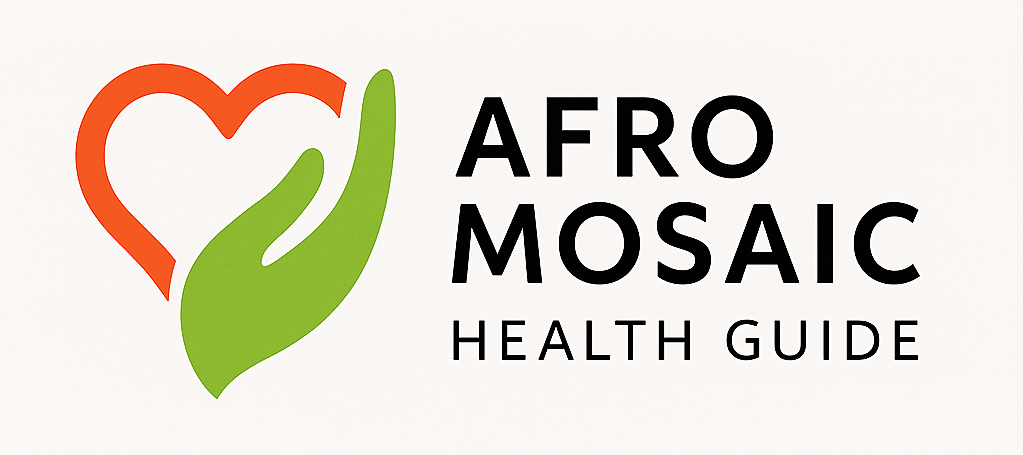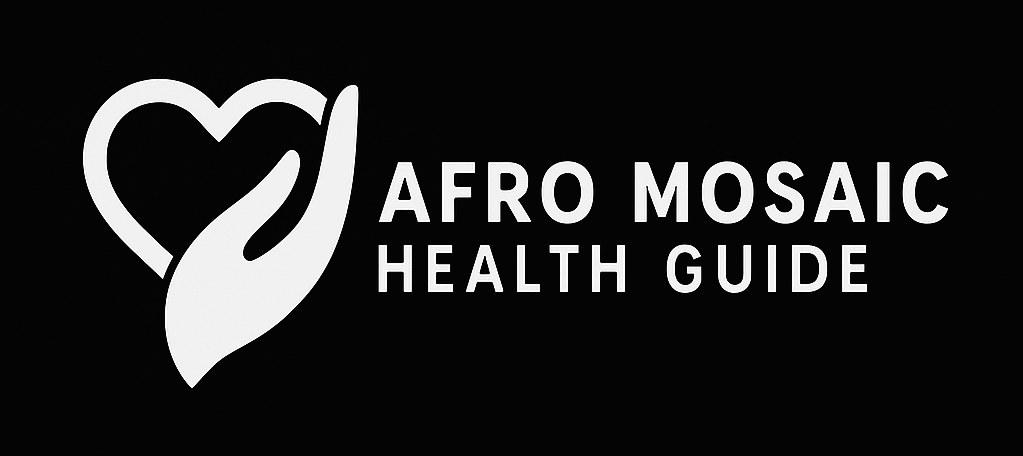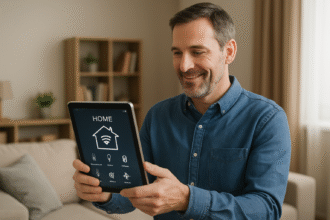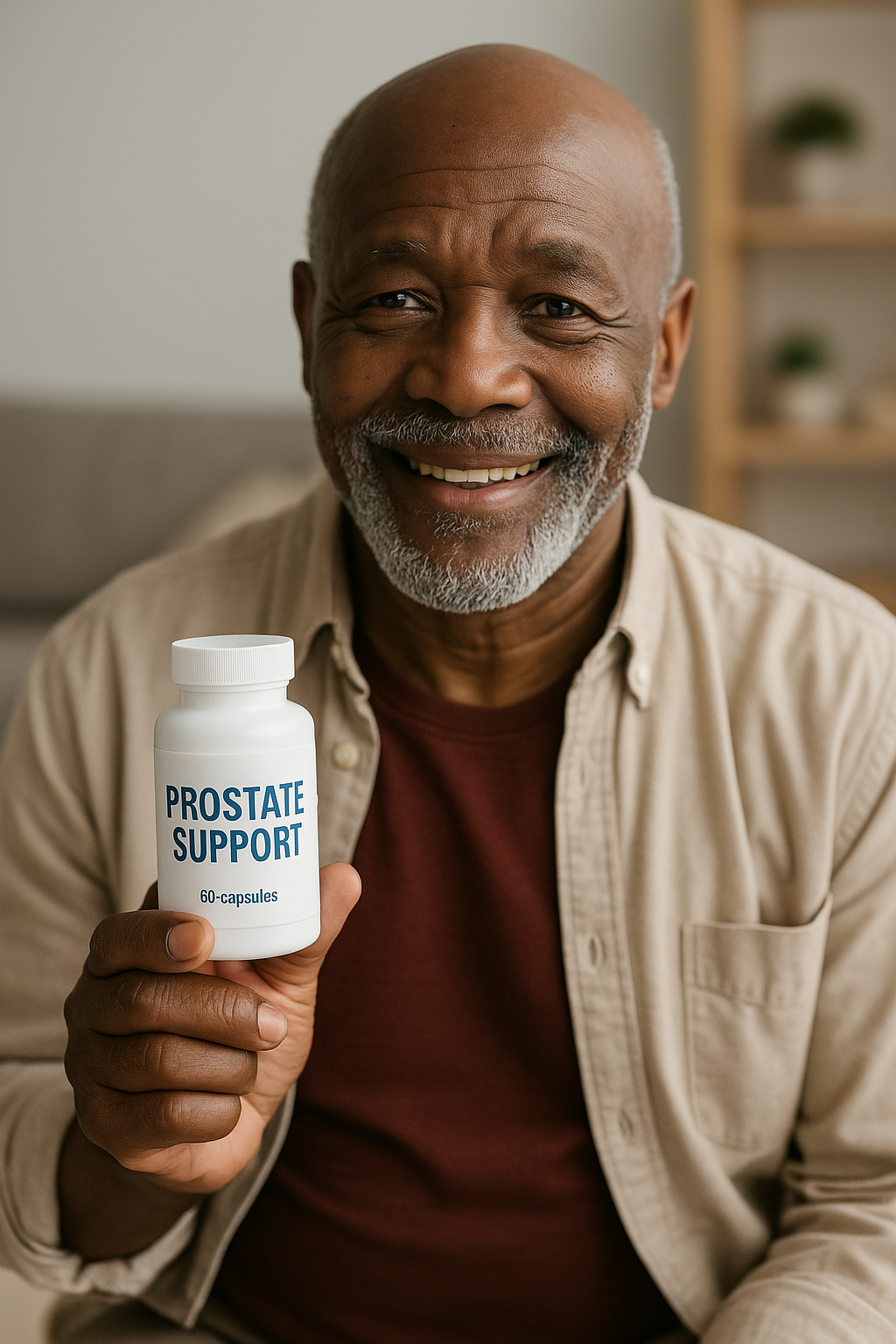Across the world, a quiet crisis has persisted for generations — a health divide that cuts along color lines. From Kingston to Chicago, London to Lagos, Black people face higher rates of chronic illnesses like asthma, diabetes, hypertension, Alzheimer’s, and, most recently, COVID-19. But behind those numbers lies a deeper wound.
It’s not just biology. It’s bias.
When the System Doesn’t See You
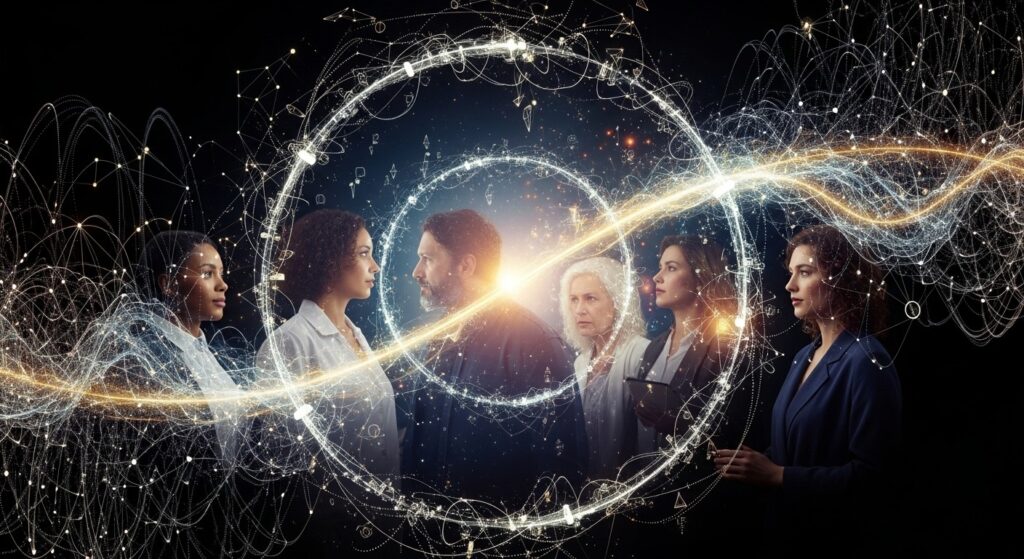
Imagine seeking medical help, yet leaving the hospital feeling unseen. The pain you describe is dismissed. The symptoms you list are minimized. This is not imagination — it’s the daily reality for millions of Black patients.
Studies from the U.S., Canada, and the U.K. confirm what communities have long known: Black patients often receive less care and less compassion. Pain medication is prescribed less often. Preventive screenings are offered less frequently. Delays in diagnosis and treatment are more common. Even in emergencies, response times differ — sometimes with tragic consequences.
The roots of this injustice run deep. Old myths about Black pain tolerance still influence modern medicine. Racial bias — often unspoken — shapes who gets tested, treated, and believed. Health outcomes are not simply a reflection of genetics; they mirror the systems we’ve built. And when those systems are unfair, disease becomes generational.
The Invisible Burden
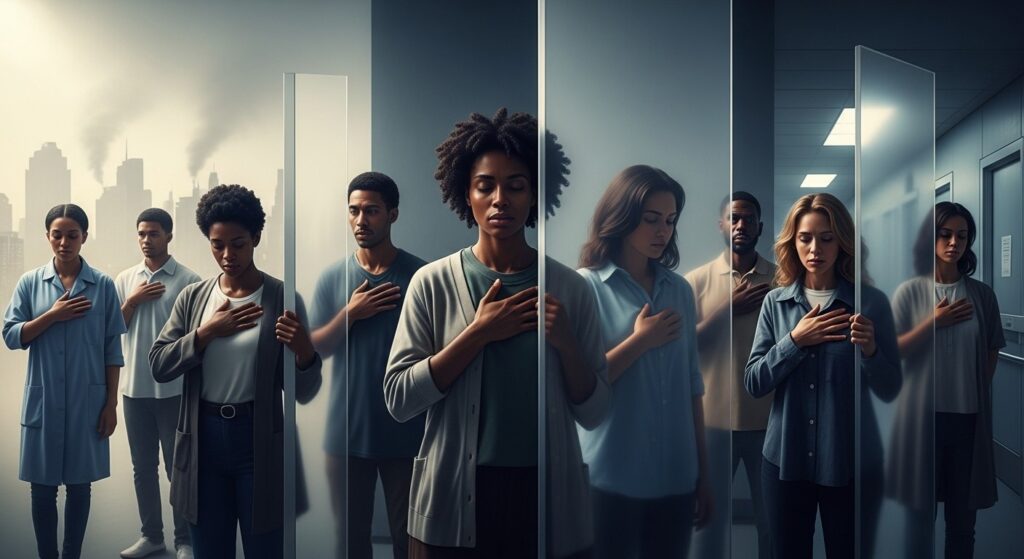
Discrimination in healthcare doesn’t happen in isolation — it grows from the soil of inequality itself.
Many Black communities live near industrial zones or in neighborhoods where air pollution triggers chronic asthma. Limited access to affordable, healthy food fuels diabetes and obesity. Financial strain and daily racism elevate stress levels, driving hypertension.
Even in old age, disparities persist. Black seniors with Alzheimer’s are often misdiagnosed or diagnosed late, losing precious time for treatment and support.
Then came COVID-19, exposing every fault line. Black communities were hit hardest — not by chance, but by circumstance. In Canada, hospitalization rates were nearly double. In the U.S., death rates soared to three times higher. The pandemic didn’t create the inequity; it revealed it in full light.
Yet, in every crisis, there’s a spark — a chance to rebuild what was broken.
AI: The New Frontier of Fairness
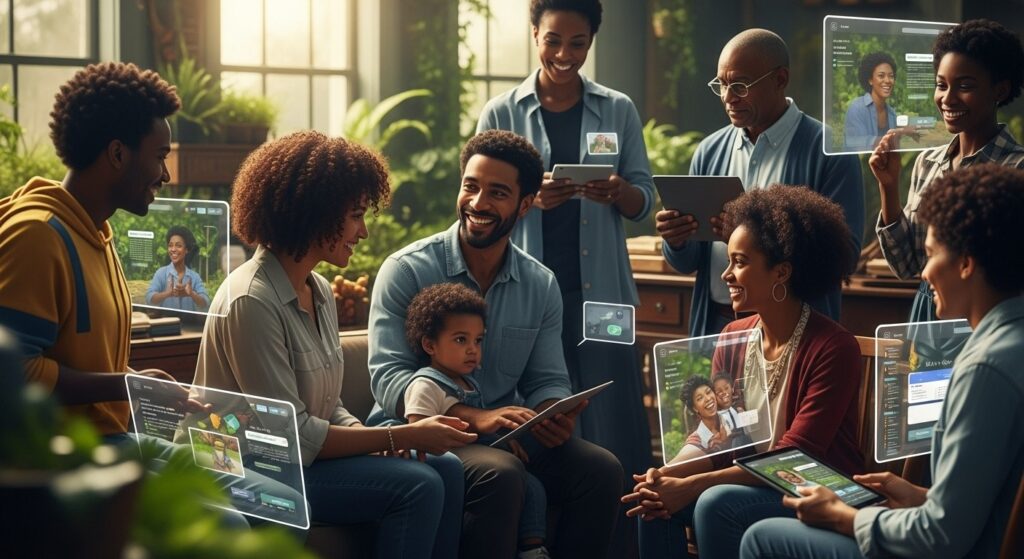
Artificial Intelligence (AI) may be the most promising tool we’ve ever had to confront inequality — if used wisely.
AI doesn’t get tired, emotional, or biased in the same way people do. It can analyze millions of medical records to detect disparities invisible to the human eye. It can flag patterns in hospital data that show where discrimination hides. It can even predict which communities face higher risk of chronic illness — and intervene before tragedy strikes.
Here’s how AI is already reshaping health:
- Predictive analytics can assess risk based on lifestyle and environment, not stereotypes.
- Virtual assistants and chatbots deliver culturally sensitive health education directly to families who might otherwise be overlooked.
- Data audits powered by AI can hold healthcare systems accountable for unequal outcomes.
AI, when built with fairness in mind, doesn’t see race — it sees results.
But technology alone isn’t enough. To work for everyone, AI must be trained by diverse voices and grounded in equity. Otherwise, it risks repeating the same mistakes in digital form. Representation in tech, medicine, and research is not a luxury — it’s the foundation of trust.
Where Change Begins
Real progress isn’t just about algorithms. It’s about awareness. It’s about demanding accountability from systems that have too long treated bias as “just the way it is.”
The fight for health justice means asking hard questions:
- Why are certain neighborhoods still without clean air or fresh food?
- Why are Black mothers still dying at higher rates during childbirth?
- Why do we still need to prove our pain is real?
AI can’t fix empathy. But it can force systems to face the data — to confront inequities with evidence too clear to ignore.
Building a Healthier Tomorrow
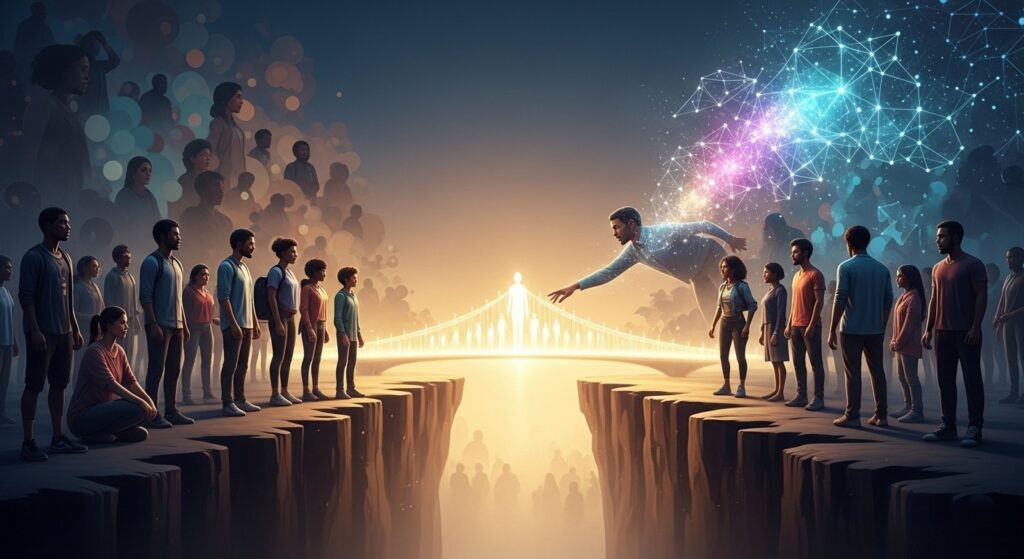
Hope, however, is not found in technology alone. It’s found in people — in communities reclaiming control over their health and demanding better.
That’s where voices like Afro Mosaic Health Guide (AMHG) Magazine come in. We’re helping bridge the gap between awareness and action — using AI, media, and education to empower Black readers with culturally relevant health knowledge. Our mission is simple: where AI meets the heartbeat of the community.
Through storytelling, expert insight, and digital innovation, AMHG is part of a growing movement to ensure that health equity is not a promise, but a reality.
The Future We Deserve
The future of medicine is being coded right now. The question is: will it finally serve everyone?
When AI is guided by justice, it becomes more than technology — it becomes transformation. It levels the field. It gives voice to the unheard. It sees those who’ve long been invisible in the data.
The work begins with awareness but ends with action — with doctors who listen, policymakers who care, and communities that refuse to be left behind.
Health is more than survival. It’s dignity. It’s belonging. It’s the freedom to live fully, without fear that your color determines your care.
AI gives us a chance to rewrite the story — to turn centuries of bias into a new chapter of balance, fairness, and healing.
And this time, the world is watching.
Tagline: Afro Mosaic Health Guide — Where AI Meets the Heartbeat of the Community.
